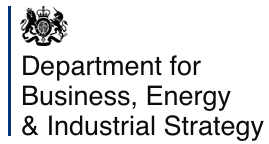I recently blogged about problems caused by the Brexit for the U.K. nuclear power industry. The U.K. was a member of Euroatom, a European Union agreement on the handling of nuclear materials and technologies. Now that it is leaving the EU, the U.K. has to draft laws and regulations that reflect the Euroatom agreement in order to continue to trade in nuclear materials and technologies with EU countries.
The deadlines for developing acceptable safety measures for handling nuclear materials and technologies that the U.K. needs are already being missed. Without these safeguards which include the creation of a governing body to manage the new laws and regulations, the U.K. may not be able to get the materials that they need to fabricate nuclear fuel assemblies needed to keep U.K. commercial power reactors operating.
Five “high-level” risks have been identified in an internal memo at the U.K. Office of Nuclear Regulation One concern involves in the creation of a government nuclear safety agency to administer the new laws and regulations. Another problems is that work on a new IT system that was supposed to have started by the end of March is behind schedule and has already missing an important deadline. The other three risk areas identified in the memo have to do with recruitment of personnel, lack of training for inspectors and funding for the new agency.
Warnings have been raised that U.K. power stations may not be able to find nuclear fuel if a failure of Brexit requirements means that nuclear fuel cannot legally be transported from EU countries to the U.K. There have been reports that there may also be a shortage of medical isotopes that are used in medical imaging and cancer treatment. However, the U.K. government has said that medical isotopes are not subject to the same rules and regulations as nuclear fuel and that the Brexit will not impact the U.K. ability to import such isotopes.
The CEO of the U.K. Nuclear Industry Association, Tom Greatrex, said that the U.K. might find itself with no nuclear fuel if the Brexit requirements are not handled quickly and properly. He said, “Whilst you may have a stock of raw material to be able to produce fuel. Eventually, you are going to be in the position where you use that up. “We could end up in a situation where you have got a perfectly well-functioning fleet of nuclear power stations but we haven’t got enough fuel ... We don’t want to end up in the position where we have got power stations and haven’t got fuel.”
A spokesperson for the U.K. Department of Business, Energy, and Industrial Strategy said that it had made, “significant progress in preparing to leave Euratom to ensure safeguards are in place from day one. The nuclear safeguards bill is making good progress through parliament and we continue to work closely with the Office for Nuclear Regulation to ensure we continue to have a robust regime in place.”
The DBEIS spokesperson also said that the U.K. has signed a nuclear cooperation agreement with the United States. It hopes that this agreement is only the first of a whole series of agreements that will ensure that there is no disruption to the U.K. nuclear supply chain.
